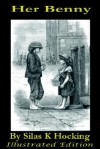Currently reading
The Lonely Sea: Collected Short Stories
Her Benny
Vedere din Parfumerie
Mysticism and Logic (Western Philosophy)
The Analects of Confucious
Pragmatism: A New Name for Some Old Ways of Thinking
Does Anything Eat Wasps?: And 101 Other Unsettling, Witty Answers to Questions You Never Thought You Wanted to Ask
Mutual Aid
City of Djinns: A Year in Delhi
The Brothers Karamazov
Taras Bulba
 As a literary work? Short, fast, and very entertaining. But that's not what makes it great. Its greatness rests in its inspiring the greatest literature of Russia and the world. Almost as an aside, it also provides more detail about Cossack life than I could find online or in Ukraine. In providing accurate details of Cossack life, with its mindless violence and racism, it exposes the roots of mindless violence and racism in the area's recent history.
As a literary work? Short, fast, and very entertaining. But that's not what makes it great. Its greatness rests in its inspiring the greatest literature of Russia and the world. Almost as an aside, it also provides more detail about Cossack life than I could find online or in Ukraine. In providing accurate details of Cossack life, with its mindless violence and racism, it exposes the roots of mindless violence and racism in the area's recent history.I've recently spent several months in Western Ukraine. No one there wanted to talk about the conflict in Eastern Ukraine, which may or may not involve Russia on a grand scale. No one tried to answer my questions about Cossacks either. Sometimes I saw men with the sides of their heads shaved, but Gogol tells me they have to have a kind of tail to be deemed fighters. A mix of Wikipedia and local history books suggests that Cossacks were just whatever men chose to fight Lithuanian rulers, making their base in a 15th century "wild area" in some part of Ukraine. That isn't quite Gogol's description. By the time of this book their enemy had become Poland.
As far as I know, Western Ukraine wasn't a Cossack stronghold, but rather, one of Ukraine's only mountainous areas, where Ukrainian militias in WWII killed between 40,000 and 60,000 Polish women and children. Several villages in western Ukraine also killed large number of Jewish residents in the 1940s.
That would be entirely in keeping with Gogol's descriptions. And yet the people I met in Western Ukraine seemed to lack the mad lust for life in Gogol's work. There was indeed a beautiful, baffling joy and naivete in some of the historically most racist areas, but I'd be curious to see more "Cossack" areas in better circumstances.
A study of Russian literature from the 1800s which has just appeared in my updates suggests that Taras Bulba is unique in Russian literature, a romantic novel copying Homer's epic form. Yet I still contend that the impulsive characters are quite similar to, and even inspiration for, the crazed religious zealots in Dostoevsky, although not many characters in Taras Bulba, aside possibly from one son and his mother, spend time in psychological agony.
I know that spending too much time in Western Ukraine, especially after learning about their recent genocides, caused me a certain amount of psychological agony.
I recently wrote more thoughts about Gogol's cultural influence:
https://www.goodreads.com/story/show/466407-idle-thoughts-on-war













